Mon, June 28, 2010 | Reuters | Yahoo News | Rubinreport | By Barry Rubin
Masked men trashed a U.N. summer camp Monday [June 28, 2010], tying up guards and slashing tents and an inflatable pool in the second such attack blamed on suspected extremists in just over a month.
A month earlier, on May 23, 2010, about 20 men, some carrying assault rifles, tore up large plastic tents and burnt storage facilities at a UN summer camp, where tens of thousands of children are due to attend camp sessions, said Ibrahim Elewa, a private guard who was on duty when they struck.
Rival day camps by the United Nations and Gaza’s Islamic militant Hamas rulers compete for the hearts of the next generation, the roughly 700,000 children under 15 who make up nearly half of the Gaza Strip’s population. Hamas camps teach an anti-Israeli doctrine and military-style marching, along with horseback riding, swimming and Islam. U.N. camps try to instill hope in a better future, a message wrapped in fun and games. The U.N. says it hopes to help shield Gaza’s children against the lure of militancy.
“This is another example of the growing levels of extremism in Gaza,” John Ging, the director of operations for the U.N. Relief and Works Agency for Palestinian Refugees, said in a statement. “The overwhelming use of UNRWA’s Summer Games has once again obviously frustrated those that are intolerant.”
U.N. officials said they don’t know who attacked the recreation facilities but they suspect the vandals are Islamic extremists who object to programs that allow boys and girls to jointly swim, play volleyball, and learn about the arts, theater and other cultural activities.
Hamas is also becoming more assertive in imposing its strict version of Islam on daily life in Gaza. It has ordered male coiffeurs out of women’s salons, and teenage girls are under intense pressure from teachers to wear headscarves and robes in government schools.
Israel’s deputy U.N. ambassador, Daniel Carmon, said that the camp attacks are “another reflection of what Israeli has been saying for years: that the territory is literally occupied by a terrorist organization, Hamas,” that promotes and permits “extremism, terrorism, rockets over Israel and now, attacks against summer camps managed by the international community.”
Hamas attacks UN summer camp for not being a terrorist training camp
By Barry Rubin,
Hamas has twice violently attacked UN summer camps in the Gaza Strip in order to destroy them and intimidate kids from attending them. The goal is to force young people to go to Hamas summer camps where they will be given military and ideological training to teach them to be future terrorists.
The UN actually condemned the attacks and the Hamas regime for fomenting them.
I’m not complaining about this article—a small drop in the ocean of needed media coverage of Hamas’s repression and extremism—but one sentence caught my eye. The UN, “camps provide a rare distraction from the hardships endured by more than 250,000 Palestinian refugees that live in the Gaza Strip.”
Unlike many others, this article doesn’t blame Israel for all of these problems but it is also worth recalling why refugees still live in camps. Prior to turning over the Gaza Strip to rule by the Palestinian Authority in 1994, Israel at times tried to resettle the refugees in new housing. This step was not only opposed by the PLO—which wanted to keep the refugees in temporary housing until their triumphant return to a Palestine built on the smoldering remains of a destroyed Israel—but by a UN resolution. And so Israel abandoned the effort.
The Palestinian Authority (PA) ruled the Gaza Strip for more than a dozen years and received lavish aid funding, some of it specifically earmarked for new housing. But it was PA policy never to move refugees into new housing, for the same reason as before. Their suffering was good propaganda abroad and also was intended to keep the refugees in a dissatisfied state of mind so they would support continuing the battle until total victory and be willing to sacrifice their lives for the cause.
So why do refugees in the Gaza Strip and West Bank live in refugee camps today? For the same reason that there is no Palestinian state: Because of decisions made by the Palestinian leadership, both nationalist and Islamist.
There is no way anyone can refute these points, they can only ignore them.
The article also repeats another fallacy in referring to Hamas as “the Islamic movement that came to power through elections in 2007 and whose legitimacy the U.N. does not fully recognize….”
In fact, Hamas did not come to rule the Gaza Strip due to elections, which did give it a parliamentary majority, but through a bloody and unprovoked coup against the PA. If it had not seized power, it is likely there would be no embargo against the Gaza Strip today nor would there have been any war last year—with the accompanying destruction and loss of life–caused by a Hamas attack on Israel.
Again, I am not complaining about this specific article, which is far better than most, or about the UN response it reports, which should be far more common, but merely pointing out how difficult it is—and yet how important it is—to understand the context of the Gaza Strip today.
Let me repeat that the Gaza Strip is at present, albeit not internationally recognized as a state, a radical Islamist dictatorship run by a terrorist group seeking genocide, preaching antisemitism, suppressing women, forcing the departure of Christians, teaching its children to become suicide bombers, planning a future war with Israel, likely to subvert Egypt, acting as a client of Iran, and seeking to expel all Western influence from the region.
Any discussion about aiding the regime to stay in power or engaging it diplomatically should start by dealing with the previous paragraph.
About the author,
Barry Rubin is director of the Global Research in International Affairs (GLORIA) Center and editor of the Middle East Review of International Affairs (MERIA) Journal. His latest books are The Israel-Arab Reader (seventh edition), The Long War for Freedom: The Arab Struggle for Democracy in the Middle East (Wiley), and The Truth About Syria (PalgraveMacmillan). His new edited books include Lebanon: Liberation, Conflict and Crisis; Guide to Islamist Movements; Conflict and Insurgency in the Middle East; The West and the Middle East (four volumes); and The Muslim Brotherhood.



 RSS
RSS

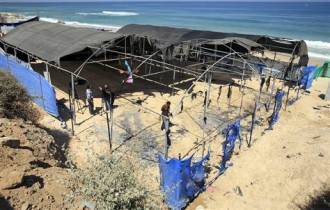
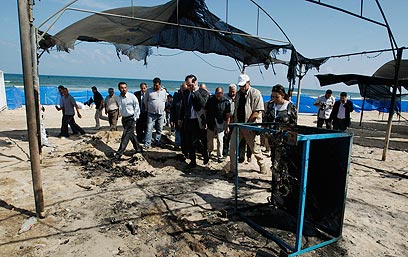
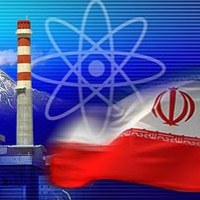
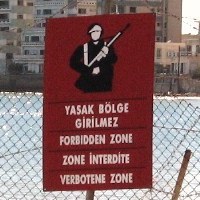
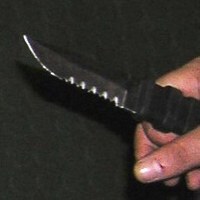
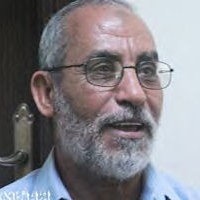
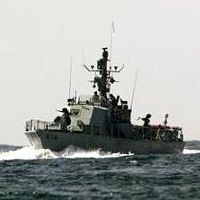




Hamas attacks UN summer camps #islam #hamas #gaza #un #islamism http://j.mp/8YWhBl
RT @CrethiPlethi: Hamas attacks UN summer camps #islam #hamas #gaza #un #islamism http://j.mp/8YWhBl
Even zomerkamp vernielen. @harryvandesp @kobus16 (is she alive?) Mening over deze vernielzucht van jullie Hamasvrinden? http://j.mp/8YWhBl
RT @BalenalsnGieter: Even zomerkamp vernielen. @harryvandesp @kobus16 (is she alive?) Mening over deze vernielzucht van jullie Hamasvrinden? http://j.mp/8YWhBl
RT @BalenalsnGieter: Even zomerkamp vernielen. @harryvandesp @kobus16 (is she alive?) Mening over deze vernielzucht van jullie Hamasvrinden? http://j.mp/8YWhBl
RT @BalenalsnGieter: Even zomerkamp vernielen. @harryvandesp @kobus16 (is she alive?) Mening over deze vernielzucht van jullie Hamasvrinden? http://j.mp/8YWhBl
RT @BalenalsnGieter: Even zomerkamp vernielen. @harryvandesp @kobus16 (is she alive?) Mening over deze vernielzucht van jullie Hamasvrinden? http://j.mp/8YWhBl
RT @BalenalsnGieter: Even zomerkamp vernielen. @harryvandesp @kobus16 (is she alive?) Mening over deze vernielzucht van jullie Hamasvrinden? http://j.mp/8YWhBl
RT @CrethiPlethi: Hamas attacks UN summer camps #islam #hamas #gaza #un #islamism http://j.mp/8YWhBl